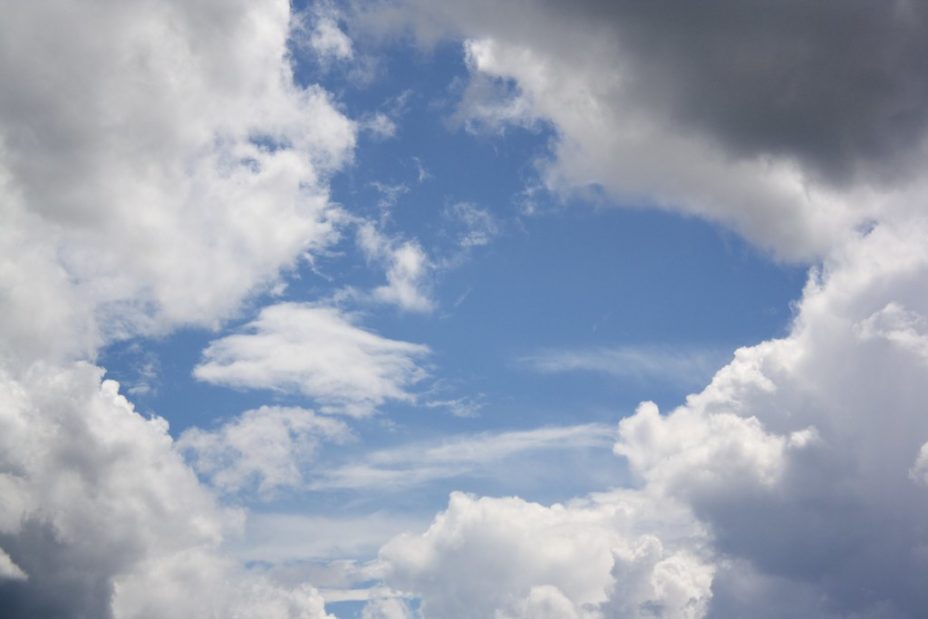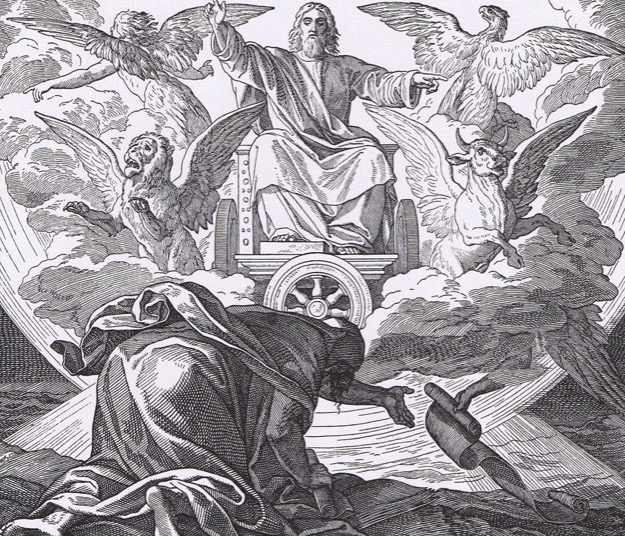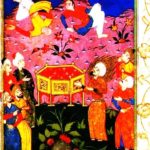Surah comes right after Surah 81 in the conventional Egyptian chronology, and I see no problem with this except for the out of place (and weirdly long) ayah reassuring Muhammad that if he forgets something, it’s because Allah decides he would. Muhammad hasn’t had so many revelations that forgetting them should be a problem yet.
Over all, this surah feels less like something that came straight out of Muhammad’s fevered imagination that’s been infected by stories he’s heard from Waraqah and more like the first two surat. The messages here are focused on reassurance, cajoling, and comforting Muhammad by telling him that he doesn’t have to do anything that makes him uncomfortable.
Here again, we have a surah revealed in sections.
The First Revelation: Muhammad’s Memory Will Be Reliable
- Glorify the name of your Lord, the highest,
- He-Who-Created and laid out,
- And the One who determined and guided,
- And the One who brings forth pasturage,
- And makes it black stover,
- We will make you call the words so you do not forget.
- Except what Allah wills. Indeed he knows the public [or open] (things) and what he hides.
Ignoring the comic retraction at the end that is surely a later addition, we have here Allah reassuring Muhammad that, in fact, he’s going to be able to call the words–that is, say a set formula aloud, as readers do when they read aloud or as reciters do when they recite–without forgetting, but divine decree. This is a typical early surah, reassuring Muhammad, who is still quite uncertain about many things. Over time, this would prove a false decree, though, and so ayah 7 was then added (crammed in, really) to explain Muhammad’s forgetting as divine will.
I say “Allah,” but there is, as yet, no Allah in the surat, and there will not be for quite some time. Instead, the Power is still using the name He-Who-Created here–we have “the name” followed again by this formula! But of course, Muhammad misses the significance again. (The highest is just an adjective–if it was being used as a noun, the form would be different.)
The Second Revelation: Muhammad Won’t Be Made Uncomfortable
- And We will ease (the way for) you unto (the state of) ease.
- So remind, if the reminder benefits.
- He who fears will remember [or accept the reminder],
- And he the wretched one will avoid it,
- The one who will burn in the great Fire.
- Then he will not die therein, nor live.
In Surah 81, if it was revealed generally in order, Muhammad would already be getting some blowback from people who don’t believe him and think he’s crazy. (Muhammad’s defense in other places is basically that he’s not a crazy poet because djinn-possessed people produce metrical poetry, and since the Quran only rhymes and doesn’t have the meter of poetry, he’s definitely not a crazy poet….)
Now Muhammad gets a second reassurance. It’s not his job to make people believe. If they hear his warning or his reminder and they’re a good person, they’ll pay attention. If they don’t, then Allah will punish them with eternal hellfire. Allah will always make sure his prophet has it easy–Muhammad, from the pride-shame culture of Arabia, could not imagine that Allah would allow any of his prophets to suffer really humiliation and discomfort, in spite of Waraqah’s message. Islam is the perfect inverse of Jesus’ message: “Take up your cross and follow me.”
The Third Revelation: What the Righteous Should Do
- Certainly, he has succeeded who purifies himself,
- And remembers the name of his Lord and prays.
- Nay! You (all) prefer the present life
- And the next life is better and more lasting.
- Indeed, this surely is in the former Scriptures,
- The Scriptures of Ibrahim (Abraham) and Musa (Moses).
Muhammad has not yet told his followers what they’re supposed to do other than to listen to him. They’re supposed to be righteous, but what does that even mean? Now we have our very first picture of what Muhammad’s Companions are supposed to do: 1) purify themselves (vague, but fine), 2) remember the name of the Lord (which they don’t actually know that they have yet!–but a vague monotheistic meaning to this works well enough as a stop-gap), and 3) pray.
These are the first three commands of what would become sharia law.
Next, the surah transitions awkwardly into addressing the “wretched ones” directly, even though this supposedly represents Allah speaking to Muhammad, Muhammad’s audience is addressed directly as “you all.”
The Scripture of Abraham?
At the end of the surah, Allah affirms the integrity of the former scriptures (which would be the Jewish and Christian scriptures) in the present moment, particularly the scriptures of “Abraham and Moses.”
Everyone knows what the Scriptures of Moses are–that’s the Taurat or Torah. But what on earth is the Scripture of Abraham? Abraham in the Torah had no Scripture. This could be a false idea that Muhammad had that every prophet has a scripture–this is an idea he repeats frequently–or he could have heard of the Apocalypse of Abraham.
That seems to settle it–the Apocalypse of Abraham was rejected by the Jews, but it’s really Abraham’s Scripture, so Muhammad knows more than the Jews about their own Scriptures because he has a direct link to Allah.
There’s a problem with this interpretation, however, and that’s the date of composition. The Apocalypse of Abraham dates from between AD 70 and 150, two thousand years after Abraham died. There’s no evidence that it was surviving in Arabia or Syria at this time, either–the only surviving copy is written in Old Slavonic. It incorporates a lot of myths from Talmudic traditions and also incorporates a Merkabah vision. Some of the fictional material in the Apocalypse of Abraham slips into other parts of the Quran, but these are stories that are so popular in other forms that they circulated independently, so we cannot say for certain that Muhammad was thinking of this late, fictional work.
Either, way, it is an error. Abraham was not given any Scripture at all, but a fictional work attributed to him circulated 2000 years after his death.





